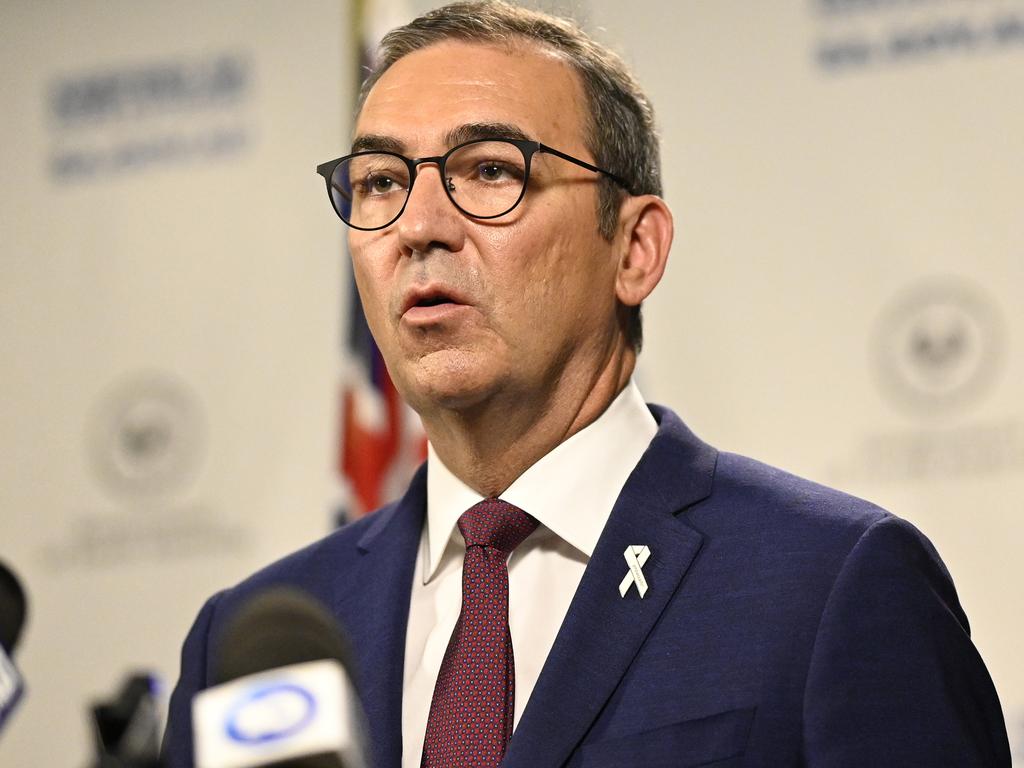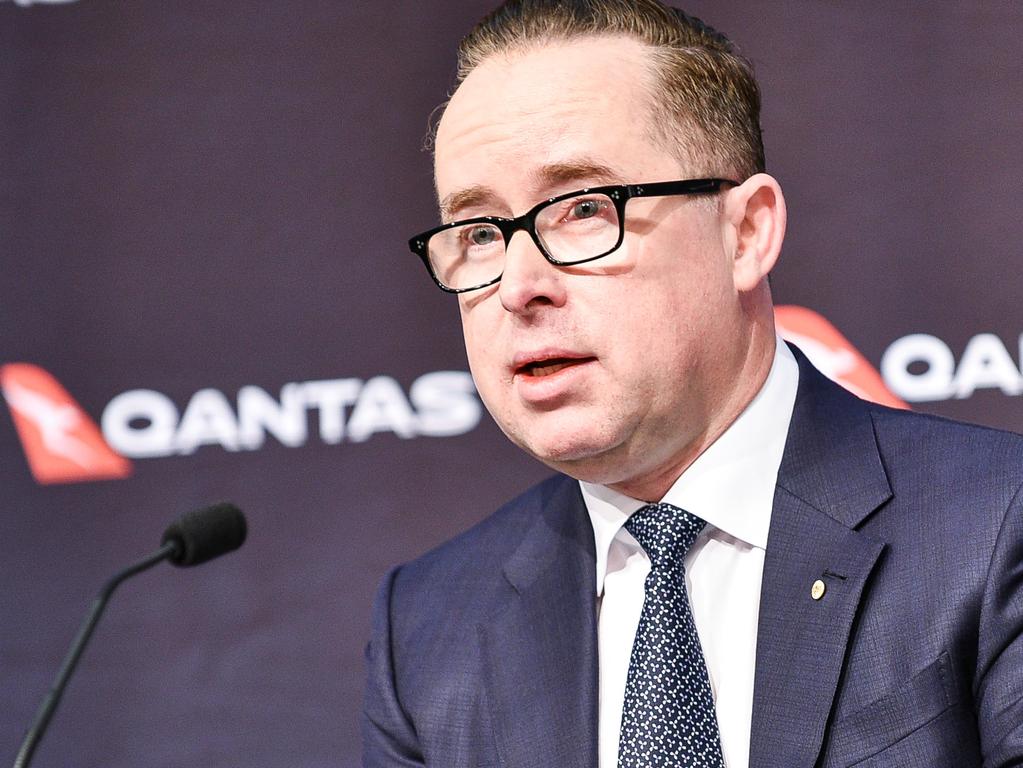Coronavirus Australia: Wake up and smell the sickly stench of government control
So, it’s immoral to leave behind a carbon footprint for future generations — but unimaginable debt? No worries.

It might have been simpler to just let my barista keep the $10 — or are we worried that leaves too many work-from-home state and federal public servants with too little to do. Imagine the money wasted and the efficiencies forgone in this endless churn; it is a wonder cash is not turned into butter.
Yes, this is a simplistic and stylised example, but it illustrates the never-ending expansion and reach of government. While the mortality rate from COVID-19 is trending downwards worldwide, the virus has proven lethal against pre-pandemic notions of small government.
On the macro scale, the impact is frightening; where once we were traumatised by Wayne Swan’s $50bn, deficits we have flipped this year from a projected $7bn surplus to an $85bn deficit — a record shortfall that will be almost tripled next year with a $213bn dollar deficit. Swan can finally have a Christmas where he fancies himself as Scrooge.
Government spending as a percentage of GDP snuck above 25 per cent in the wake of the Global Financial Crisis, after which even Labor agreed it should be kept below that mark. But it surged to 27.7 per cent last year, and will hit almost 35 per cent next year. So, while we once considered it prudent to keep federal spending to less than a quarter of the economy, Canberra’s splurge is about to account for more than a third of GDP.
Betting bank on pandemic
When John Howard lost government, 13 years ago this week, the nation had cash in the bank — negative net government debt. We started to worry when debt rose above $150bn after the GFC, ballooning to more than 10 per cent of GDP. Now it has hit $500bn — half a trillion dollars, or 25 per cent of GDP — and within five years it will top $1 trillion, or equivalent to 44 per cent of the national economy.
Never before has the federal government sent more money to more people and more businesses. We are reacting to the coronavirus pandemic like it is a once-in-a-lifetime challenge that we can bet the bank on — best hope there is not another pandemic, natural disaster, global depression or war around the corner.
While interest rates are at record lows, we have been prepared to burden future generations with enormous risks. The big privatisations are behind us and all hopes hinge on the tumultuous cycle of economic growth. Most of us under 80 years of age can thank previous generations for the prosperity we have enjoyed — yet we seem happy to do the opposite, make ourselves comfortable in the here and now, while forwarding the bill to future generations.

The same people who argue it is immoral to leave behind a carbon footprint for future generations have no qualms about leaving them more debt than has ever been imagined. There must be an argument that we could have been more prudent and avoided any sense of intergenerational theft — but this discussion seems absent from the political debate.
Perhaps even more debilitating than the lifetime of debt is the rapid and unbridled escalation of the Nanny state. What has long been an alarming trend has run rampant since Wuhan first shared its virus with the world.
We have long observed the politicians’ predilection for increasing spending, launching new initiatives, imposing new rules and inveigling themselves into every aspect of our lives in order to win our gratitude and boost their prospects. Yet it is even more disturbing to see how great swathes of the population have lapped this up and played along — “gimme more free stuff”.
Nonsensical interventions
Worse still is the way we see people enthusiastically yield to the feverish and often nonsensical interventions imposed upon them. Melburnians heeded a drastic, inconvenient and muddle-headed curfew slapped on the city with no medical imprimatur. They also were forced to wear face masks outdoors, even many metres away from fellow citizens.
Daniel Andrews and his barrackers claim the absence of infections as vindication, when the whole point was supposed to be about controlling the pandemic without crushing communities, businesses and livelihoods. Around all the states except NSW, signs are that these lessons are yet to be learned.
Worryingly, police officers in Victoria and elsewhere enforced curfews and other nonsense with ruthless disregard for civil rights — officers on horseback and in patrol cars moved people on in Sydney parks, pregnant women were arrested over Facebook posts in Melbourne, drones spied on Western Australians in the streets, and there were Checkpoint Charlies set up along a string of interstate borders.
Most of us accepted these intrusions. People compliantly kept their children home from school, for months on end, when there was no medical basis for doing so. We stayed apart from family because of closed borders, we cancelled overseas holidays, worked from home, and kissed goodbye to a wide range of social activities.
Curfews weren’t enough
But it was not enough; governments wanted more control. They banned people in Adelaide and Melbourne from leaving their homes; restricted how many people could visit our houses; set stringent attendance limits for funerals, weddings and church services; demanded we did not sing; or dance; made us commemorate Anzac Day on our own but let the protesters do as they pleased; and they shut beaches.

All this in a blessed Land Down Under where the people were once renowned for their self-reliance and anti-authoritarian streak. Has the Nanny state eaten away our resilience and national character?
Sure, most of us have understood the aims and surrendered to authority, in part because we believe in the project of “flattening the curve”. But much of what has been imposed has been irrational, over the top and not based on science — yet we went along with it anyway. Were we too compliant, too ignorant, or too frightened to object?
There are Australians right now, kept apart or sweating it out in home isolation in Western Australia because Mark McGowan still insists on hard borders with Victoria and NSW, even though there has been no community transmission for weeks in the two most populous states. Some will be proud of this — “we are all in this together” — but it speaks more to fearmongering and ignorance.
Politicians have spoken of a “dangerous” situation and how they need to “keep people safe” which is a ridiculous way to frame attempts to control a virus that is mild to asymptomatic in more than 95 per cent of cases, makes a small percentage of people seriously ill and, in the main, is only life-threatening to people who are very old or already very ill.
This is not to dismiss the vulnerable — it is a call to focus on protecting them instead of trying to scare children and paralyse communities.
No such thing as a free lunch
Have we become so mollycoddled that we look to governments to prevent us from getting sick? Are politicians so conceited they believe they can manage all risk out of our lives? Do they fret about paying a political price because a virus hops from one person to another?

Ideas for government intervention have proliferated like a contagion. We have governments siphoning taxes from us only to regurgitate some of it back as vouchers to cover kids’ sport fees or, now, for us to spend in restaurants. There is no such thing as a free lunch — we are paying for these gimmicks ourselves.
Governments now proffer paid sick leave for casual workers, subsidies for wages, bonuses for employing people, refunds on car registration, funding for solar panels, bonuses for first-home buyers, freebies in childcare, schooling, healthcare, social housing, public broadcasting, and whatever else. We are dining out on the taxpayers of 2050.
No matter how successful or futile the vaccines turn out to be, no matter how far this pandemic has to run, we can say one thing about its duration. It will never outlive the propensity for governments and bureaucracies to constantly mutate and expand, infecting every aspect of our lives.
More Coverage









Lucky we seldom use cash any more; it would be impossible to physically swirl the dollars fast enough between taxpayers and governments. For instance, if I spend $10 at a local Sydney cafe, one dollar heads to Canberra as GST, while perhaps another one will cover company tax on any profit; some of the federal tax is funnelled back to the cafe for JobKeeper payments and most of the GST dollar is returned to the NSW government which, after an initiative in its post-COVID budget this month, then sends some of it back to me in vouchers to be spent at a local hospitality businesses — such as my local cafe.